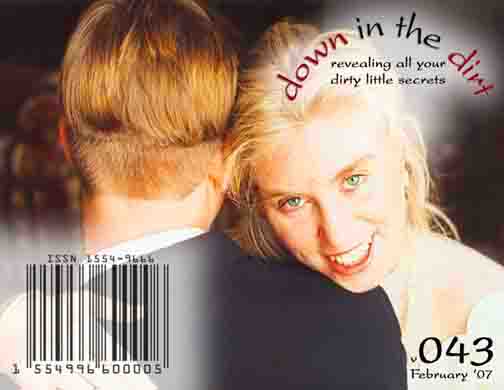
down in the dirt

welcome to volume 43 (February 2007) of 
internet issn 1554-9666
(for the print issn 1554-9623)
Alexandira Rand, Editor
http://scars.tv - click on down in the dirt![]()
![]()

down in the dirt

welcome to volume 43 (February 2007) of 
internet issn 1554-9666
(for the print issn 1554-9623)
Alexandira Rand, Editor
http://scars.tv - click on down in the dirt![]()
![]()